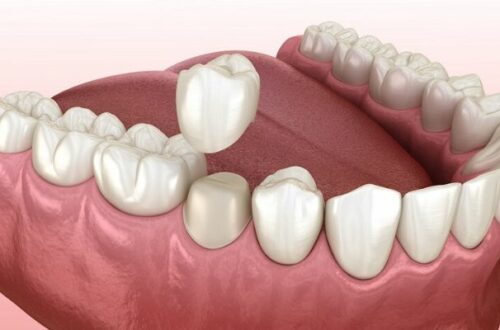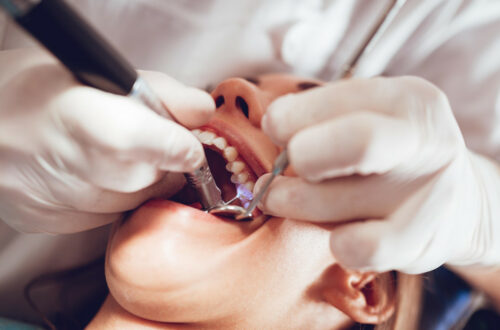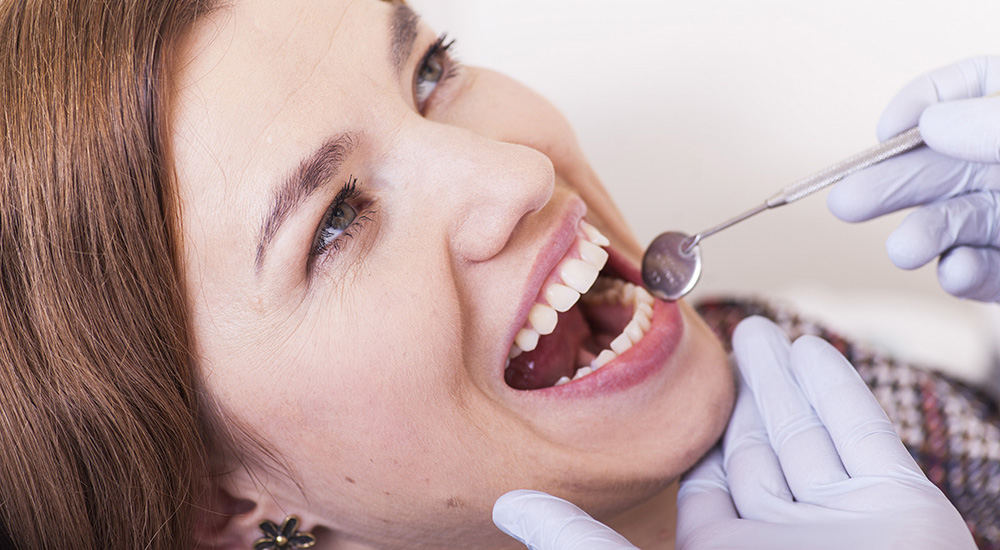The Pros and Cons of Fixed and Removable Prostheses
Living with missing teeth can be a frustrating and uncomfortable experience. Luckily, modern dentistry offers a range of prosthetic options to restore your smile and improve your quality of life. Two of the most popular types of prostheses are fixed and removable dentures. While both have their advantages and disadvantages, choosing the right one for you depends on your unique needs and lifestyle. In this article, we will explore the pros and cons of fixed and removable prostheses, so you can make an informed decision about which one is best for you. Whether you are looking to replace a single tooth or a full arch of teeth, understanding the benefits and drawbacks of each option can help you achieve the smile of your dreams. So, let’s dive in and explore the world of prosthetic dentistry!
Jesteśmy siecią zrzeszającą w sobie różnego rodzaju kliniki. Prestigeclinic powstało po to, abyś w jednym miejscu mógł znaleźć wszystko, czego potrzebujesz w zakresie zdrowia, a także chirurgii estetycznej!

Skontaktuj się z nami, abyśmy mogli porozmawiać o Twoich potrzebach i wspólnie dobrać właściwe rozwiązanie. Naszym priorytetem jest komfort, zdrowie i bezpieczeństwo pacjentów.
Co nas wyróżnia?
Przede wszystkim fakt, że skupiamy się zarówno na zdrowiu, jak i estetycznym wyglądzie. Zastanawiasz się gdzie wykonać szczepienia zgodnie z Narodowym Programem Szczepień Ochronnych? Planujesz podróż do egzotycznego kraju i potrzebujesz porady w zakresie medycyny podróży? Nie jesteś zadowolony z wyglądu konkretnej partii Twojego ciała? A może trudno Ci pogodzić się ze stanem Twojej skóry i chcesz znacząco na nią wpłynąć poprzez zabiegi? Niezależnie od tego, z czego wynikają Twoje potrzeby – jesteśmy w stanie im sprostać.
Pragniemy również propagować twierdzenie, że zabiegi medycyny estetycznej w dzisiejszych czasach są powszechnymi metodami upiększania i leczenia. Co istotne – mogą po nie sięgać zarówno mężczyźni, jak i kobiety.
Zrób wszystko, aby czuć się ze sobą jak najlepiej! Przecież o to tutaj chodzi, prawda? Jeśli nie możesz czegoś zaakceptować w swoim wyglądzie bądź stanie zdrowia, to może pora to zmienić? Wszelkie niedoskonałości można poprawić – efektywnie, szybko, a przede wszystkim BEZPIECZNIE!
REZULTAT?
Świetne samopoczucie i nastrój, ponieważ możesz czuć się doskonale w swoim ciele!
Nasze priorytety
Stawiamy przede wszystkim na komfort pacjentów, nie zapominając przy tym o bezpieczeństwie wykonywania wszelkich działań. Spoglądamy na każdego jednostkowo, doskonale wiedząc, jak ważna jest odpowiedź na indywidualne potrzeby. Kliniki wykorzystują sprawdzone, wciąż uaktualniane techniki medyczne.
Fixed prostheses: definition and benefits
Fixed prostheses are non-removable dental appliances that are attached to existing teeth or dental implants. They are commonly used to replace one or more missing teeth, and they are typically made of porcelain or ceramic materials that closely resemble natural teeth. Fixed prostheses offer several benefits over removable prostheses, including improved stability, comfort, and aesthetics.
One of the primary benefits of fixed prostheses is their stability. Because they are anchored in place, they do not move or shift around like removable prostheses can. This means that you can eat, speak, and smile with confidence, without worrying about your prosthesis slipping or falling out. Additionally, fixed prostheses are typically more comfortable than removable prostheses, as they do not require bulky acrylic or metal clasps that can rub against your gums or cause irritation.
Another advantage of fixed prostheses is their aesthetic appeal. Because they are custom-made to match the color, shape, and size of your existing teeth, they blend in seamlessly with your natural smile. This can help boost your confidence and self-esteem, as you can smile and speak with ease, without feeling self-conscious about your missing teeth.
However, there are also some drawbacks to fixed prostheses that are worth considering. One of the main concerns is that they require healthy teeth or dental implants to anchor them in place. This means that if you do not have enough healthy teeth or bone structure to support the prosthesis, you may not be a good candidate for this type of treatment. Additionally, fixed prostheses can be more difficult to clean and maintain than removable prostheses, as they require special care and attention to avoid damage or decay.
Fixed prostheses: drawbacks and considerations
While fixed prostheses offer many benefits over removable prostheses, there are also some drawbacks and considerations to keep in mind. One of the main concerns is the cost of the procedure. Fixed prostheses are typically more expensive than removable prostheses, as they require more advanced technology and specialized materials to create. This means that they may not be a viable option for everyone, especially those on a limited budget.
Another consideration is the time and effort required to place a fixed prosthesis. This type of procedure typically requires multiple visits to the dentist, as well as a significant amount of preparation and planning. This can be a drawback for those who are looking for a quick and easy solution to their missing teeth.
Additionally, fixed prostheses require a high degree of skill and expertise to place correctly. This means that you will need to find a qualified and experienced dentist who specializes in this type of treatment. If you choose an inexperienced or unqualified provider, you may be at risk for complications or suboptimal results.
Removable prostheses: definition and benefits
Removable prostheses, also known as dentures, are dental appliances that can be taken in and out of the mouth. They are typically made of acrylic or resin materials, and they are designed to replace one or more missing teeth. Removable prostheses offer several benefits over fixed prostheses, including ease of use, affordability, and versatility.
One of the primary benefits of removable prostheses is their ease of use. Because they can be removed and cleaned, they are typically more convenient and user-friendly than fixed prostheses. This means that you can easily clean your prosthesis and maintain good oral hygiene, without having to worry about damaging the appliance or your natural teeth.
Another advantage of removable prostheses is their affordability. They are typically less expensive than fixed prostheses, making them a more accessible option for many people. Additionally, removable prostheses are highly versatile, as they can be designed to replace a single tooth, multiple teeth, or a full arch of teeth. This means that they can be customized to meet your unique needs, whether you need a partial or complete denture.
However, there are also some drawbacks to removable prostheses that are worth considering. One of the main concerns is their stability. Because they are not anchored in place like fixed prostheses, they can move or shift around in the mouth, especially when eating or speaking. This can be uncomfortable or embarrassing, and it may require adjustments or repairs over time.
Another consideration is the aesthetic appeal of removable prostheses. While they can be customized to match the color and shape of your natural teeth, they may not look as natural or seamless as fixed prostheses. Additionally, removable prostheses can be bulky and uncomfortable, as they require acrylic or metal clasps to hold them in place.
Removable prostheses: drawbacks and considerations
While removable prostheses offer many benefits over fixed prostheses, there are also some drawbacks and considerations to keep in mind. One of the main concerns is the maintenance and care required to keep your prosthesis in good condition. Because they are removable, they require regular cleaning and maintenance to prevent damage or decay. This can be time-consuming or inconvenient, especially if you have a busy schedule.
Another consideration is the impact of removable prostheses on your oral health. Because they rest on your gums and other soft tissues, they can cause irritation, inflammation, or infection over time. Additionally, they may contribute to bone loss in the jaw, as they do not provide the same level of stimulation as natural teeth or dental implants.
Finally, the fit and comfort of a removable prosthesis can vary depending on your individual anatomy and oral health. Some people may experience discomfort or difficulty speaking or eating with a removable prosthesis, while others may find it to be a comfortable and effective solution for their missing teeth.
Factors to consider when choosing between fixed and removable prostheses
Choosing between fixed and removable prostheses depends on several factors, including your budget, oral health, lifestyle, and personal preferences. Some of the key considerations to keep in mind include:
- The number and location of your missing teeth
- The health and stability of your existing teeth and bone structure
- Your ability to maintain good oral hygiene and care for your prosthesis
- Your comfort and aesthetic preferences
- Your budget and insurance coverage
To make an informed decision about which type of prosthesis is best for you, it is important to consult with a qualified dentist who can evaluate your individual needs and provide personalized recommendations.
Maintaining and caring for your prosthesis
Regardless of whether you choose a fixed or removable prosthesis, it is important to maintain good oral hygiene and care for your appliance to ensure its longevity and effectiveness. Some tips for maintaining and caring for your prosthesis include:
- Brushing and flossing regularly to prevent plaque buildup and decay
- Using a denture cleaner or mild soap to clean your removable prosthesis
- Avoiding hard or sticky foods that can damage or dislodge your prosthesis
- Visiting your dentist regularly for check-ups and adjustments
- Storing your removable prosthesis in a clean, dry container when not in use
By following these tips, you can help ensure that your prosthesis remains comfortable, stable, and effective for years to come.
The cost of fixed and removable prostheses
The cost of fixed and removable prostheses can vary widely depending on several factors, including the type of prosthesis, the number of missing teeth, and the location and experience of your dentist. Generally speaking, fixed prostheses are more expensive than removable prostheses, as they require more advanced technology and specialized materials to create.
However, it is important to keep in mind that the cost of a prosthesis is not the only factor to consider when choosing between fixed and removable options. You should also consider the long-term benefits and drawbacks of each type of prosthesis, as well as your individual needs and lifestyle.
The future of prosthetic technology
As technology continues to advance, the field of prosthetic dentistry is constantly evolving and improving. Researchers and dental professionals are exploring new materials, techniques, and technologies to create more effective and comfortable prostheses for patients with missing teeth.
Some of the latest advancements in prosthetic technology include:
- 3D printing technology for more precise and efficient prosthesis creation
- Implant-supported prosthesis systems for improved stability and comfort
- Advanced digital imaging and modeling techniques for more accurate treatment planning
- New materials, such as zirconia and lithium disilicate, for more durable and natural-looking prostheses
By staying up-to-date on the latest advancements in prosthetic dentistry, you can make informed decisions about your dental health and take advantage of the latest technologies to improve your smile.
Conclusion
Living with missing teeth can be a challenging and uncomfortable experience, but modern prosthetic options offer a range of solutions to restore your smile and improve your quality of life. Whether you choose a fixed or removable prosthesis, it is important to consider the benefits and drawbacks of each option, as well as your individual needs and lifestyle. By working with a qualified dentist and maintaining good oral hygiene, you can achieve a beautiful and healthy smile that lasts a lifetime.



